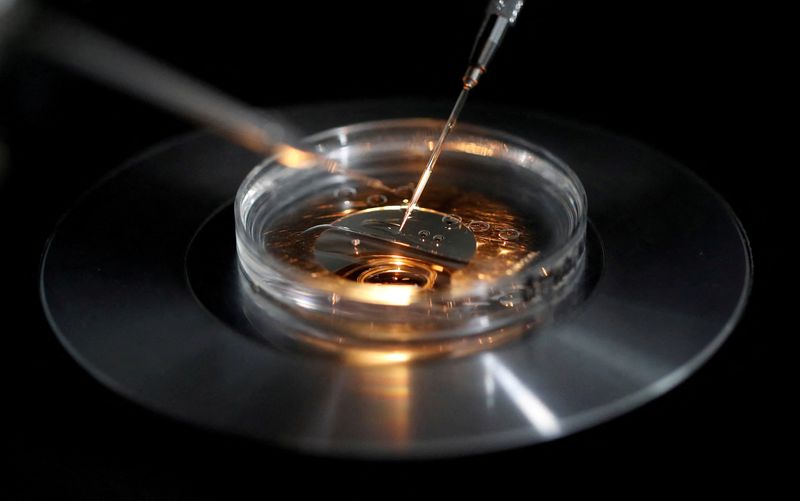(Reuters) - A Republican Alabama state senator on Tuesday filed a bill aimed at protecting the IVF industry after the state Supreme Court ruled that frozen embryos should be considered children, prompting at least three Alabama providers to halt the fertility procedure.
State Senator Tim Melson has said he hopes the bill to protect IVF providers from both criminal charges and civil lawsuits will pass the Senate and move to the state House by Thursday, according to local news reports. A Senate committee must first review the bill.
The Feb. 16 Alabama Supreme Court ruling left unclear how to legally store, transport and use embryos, and some IVF patients sought to move their frozen embryos out of Alabama.
IVF, or in vitro fertilization, involves combining eggs and sperm in a laboratory dish to create an embryo for couples having difficulty conceiving.
Republicans nationwide have scrambled to contain backlash from the decision by the Alabama Supreme Court, whose elected judges are all Republican. Democrats have seized on it as more evidence that reproductive rights are under assault.
Republicans control the Alabama state legislature.
A Florida lawmaker confirmed Tuesday she had paused efforts to pass a bill that would have protected "unborn" children, which some worry could expose the state's in vitro fertilization (IVF) clinics to lawsuits like the Alabama case.
Alabama House Minority Leader Anthony Daniels, a Democrat, filed a more expansive bill to protect the IVF industry last week. The Daniels measure would prevent "any fertilized human egg or human embryo that exists outside of a human uterus" from being treated as "an unborn child or human being for any purpose under state law." His proposal also awaits a committee hearing.
The Alabama high court issued its ruling in response to three families' lawsuits against a fertility clinic and hospital for failing to properly safeguard their frozen embryos, resulting in their destruction when a patient improperly accessed them.

The ruling was based on the state's 2018 Sanctity of Life Amendment approved by voters that supports "the sanctity of unborn life and the rights of unborn children."
On Friday, the Alabama Attorney General's office said it had "no intention" of prosecuting IVF providers or families who use their services, which involve creating embryos by mixing eggs and sperm in a lab dish.